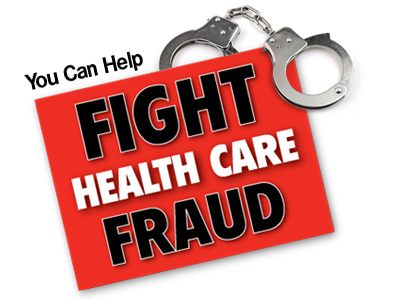
Dale Munari, a former volunteer in AARP Foundation's Fraud Fighter Call Center in Seattle, recently received a call from a man who said he was required to make home visits to Medicare beneficiaries regarding pending fee increases. The man explained that he would be in her neighborhood the next day and would come to her home to discuss them. She received another call from a person telling her that due to the Affordable Care Act, she needed to provide personal information in order to receive her new card. She received another call to "arrange delivery of a medical device" -- a device she had not ordered. One Medicare beneficiary; three attempts at fraud, all occurring within a matter of weeks. Fortunately, Munari said no to all of them.
Munari's experience is only one small example of what is happening across the country. Medicare fraud and abuse are undermining the health and well-being of older people and costing taxpayers an estimated $60 billion to $90 billion every year.

As we strive to make sure Medicare remains strong for today and tomorrow, we need commonsense solutions, not harmful cuts that require new co-payments or increased deductibles and force beneficiaries to pay more. This doesn't address the real problem -- the ever-increasing cost of health care. It just forces the typical beneficiary, who has an income of about $22,000 a year and already spends nearly 20 percent of that on health care, to pay even more and discourages people from seeking the care they need.
One of the most important steps we can take is to step up efforts to crack down on waste, fraud and abuse in Medicare and Medicaid. That's why AARP is calling on Congress to support the new bipartisan "Preventing and Reducing Improper Medicare and Medicaid Expenditures Act of 2013" -- known as the PRIME Act-- which would combat fraud.
- Prevent Medicare thieves from pretending to be doctors by curbing the use of stolen physician identities.
- Stiffen penalties for identity theft and outlaw the fraudulent purchase, sale or distribution of Medicare and Medicaid beneficiary ID numbers.
- Improve rewards for fraud tips and engage more Medicare beneficiaries in the fight against fraud through a team of volunteers and staff called Senior Medicare Patrol.
- Crack down on improper billing (almost30 billion in the Medicare fee-for-service program last year alone) by requiring Medicare to more closely track overpayments and implement solutions to address them.
- Penalize the private bill-paying companies (which reimburse providers) that overpay providers and do not meet specific payment-accuracy goals.
The PRIME Act is an example of a responsible step that improves care, reduces health care costs and creates real savings for taxpayers -- without cutting benefits. We urge you to support it.
Call to Action
Tell Congress to avoid harmful cuts and support commonsense solutions -- like the PRIME Act -- to keep Medicare strong. Go to aarp.org/commonsense.
Earlier on Huff/Post50:

